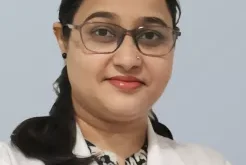Cancer treatment is no longer limited to standard protocols. The same drug, given in the same way, does not work for every patient. That’s where personalised medicine comes in. It changes the approach. It looks at your unique biology, not just the disease.
It studies your genes, your environment, and how your body reacts to different therapies. This is the future of cancer care, and it’s already here. Let’s understand what personalised medicine is, how it works, and what it means for people fighting cancer today.
What is personalised medicine?
Personalised medicine, also known as precision medicine, is a form of treatment that adapts to the specific needs of each patient. It uses detailed information about your genetic makeup, lifestyle, and the characteristics of your tumour to create a treatment plan that is tailored to you.
In cancer, this means identifying the exact mutations or changes in cancer cells that make them grow. Once those changes are mapped, doctors can choose therapies that directly target them. This is very different from traditional methods, which often use broad approaches like chemotherapy or radiation that affect both healthy and cancerous cells.
When people ask what personalised medicine is, the answer is simple. It’s a smarter, more focused way to treat disease. Instead of giving every patient the same treatment, it gives each patient the right treatment at the right time.
Tools that Make Personalised Cancer Care Possible
Genomic Testing and Tumour Profiling
One of the biggest breakthroughs in personalised care is genomic testing. It examines a patient’s DNA to detect specific mutations linked to cancer growth. Next-generation sequencing allows for fast and accurate analysis, helping doctors match patients with targeted therapies that directly attack those mutations.
Role of Biomarkers in Treatment Decisions
Biomarkers are measurable substances found in blood or tissue that guide cancer treatment. They help predict how a patient will respond to a specific drug. Biomarkers also indicate how aggressive the cancer is and whether it is likely to return.
Liquid Biopsy for Early Detection
Liquid biopsy is a non-invasive test that detects fragments of tumour DNA in the bloodstream. It allows early diagnosis and ongoing monitoring without the need for surgery. This technique is especially useful when traditional biopsy methods are difficult or risky.
Artificial Intelligence in Oncology
AI and machine learning now assist doctors by processing vast amounts of genetic and imaging data. These tools predict treatment response, identify risk factors, and help avoid unnecessary interventions. Many leading Oncology Hospitals in India use AI to personalise cancer care more efficiently.
Realworld impact in India
Many cancers can now be treated using personalised approaches. Breast, lung, colon, ovarian, leukaemia, and melanoma are just some examples. Precision care has also shown promise in rare or aggressive cancers that do not respond to standard treatment. A top Oncology Hospital in India will offer genomic profiling, biomarker testing, access to clinical trials, and AI-supported treatment plans. These centres work with oncologists, geneticists, radiologists, and data experts to give patients the most up-to-date care.
While some of these tests and therapies can be expensive, they often prevent long-term costs by avoiding ineffective treatments. That’s why more hospitals are integrating them into regular oncology care. India is also investing in research to develop cost-effective diagnostic kits and AI tools that make personalised medicine more accessible. The future is moving fast. And patients stand to benefit the most.
Challenges and what lies ahead
Personalised medicine is not perfect. Not every patient will have a clear target in their tumour. Some genetic tests may take time or produce uncertain results. And access to technology can vary across locations. But progress continues. Researchers are exploring new biomarkers, immune therapies, and combination treatments.
They are also using multi-omics [combining genetic, protein, and environmental data] to get a full picture of the disease. With better data, more clinical trials, and growing public awareness, personalised care is becoming more widely accepted. As more patients ask about what is personalised medicine, hospitals are adapting. More specialists are being trained. And more success stories are emerging.
Dr. Anoop P, Sr. Consultant – Haematology, Haemato-Oncology, Paediatric Haemato-Oncology & Bone Marrow Transplant
 Newspatrolling.com News cum Content Syndication Portal Online
Newspatrolling.com News cum Content Syndication Portal Online





